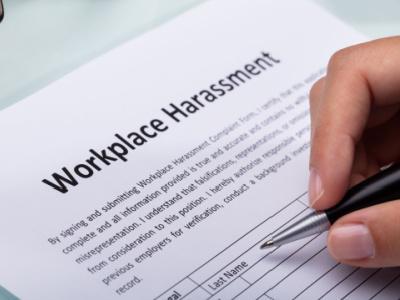Wheaton |
St. Charles |
Sycamore
 630-665-7300
630-665-7300
Are Employees Protected Against Sexual Harassment by Non-Employees?
 Sexual harassment is a pervasive issue that affects employees in various industries and workplaces. While many people are aware of the laws protecting employees from sexual harassment by their employers or co-workers, there may be some confusion about whether these protections extend to harassment from customers, clients, or other non-employees. By understanding their legal rights, employees can make sure sexual harassment by non-employees will be addressed correctly.
Sexual harassment is a pervasive issue that affects employees in various industries and workplaces. While many people are aware of the laws protecting employees from sexual harassment by their employers or co-workers, there may be some confusion about whether these protections extend to harassment from customers, clients, or other non-employees. By understanding their legal rights, employees can make sure sexual harassment by non-employees will be addressed correctly.
Employee Protections Against Sexual Harassment
The primary law that provides protection against workplace discrimination and harassment in Illinois is the Illinois Human Rights Act (IHRA). The IHRA prohibits employers from subjecting employees to a hostile work environment due to unwanted sexual advances or conduct. These protections extend not only to direct actions taken by an employer and other employees, they also encompass acts committed by non-employees. While under federal law, Title VII does not explicitly mention sexual harassment by non-employees, courts have interpreted its provisions broadly enough to also cover such instances.
The Employer's Responsibility to Address Sexual Harassment
Employers have an obligation under the IHRA and Title VII to create and maintain a workplace environment free from sexual harassment, including harassment by non-employees. While employers cannot generally control the actions of non-employees, they are still responsible for addressing and remedying instances of customer-based sexual harassment that they have been made aware of.
An effective strategy for preventing non-employee based sexual harassment includes implementing clear policies against all forms of harassment, including conduct perpetrated by non-employees. Employers should provide employees with appropriate training on how to respond when confronted with inappropriate behavior from customers. They should also take complaints seriously and conduct thorough investigations into alleged incidents. Corrective measures may be necessary to ensure that employees' rights are protected, and these measures may include restricting customer access to employees or even terminating relationships with customers.
Evidentiary Requirements for Non-Employee Based Sexual Harassment
Proving customer-based sexual harassment can present unique challenges, since these incidents may be harder to document than cases involving co-worker misconduct. However, when an employee experiences unwelcome advances or inappropriate behavior from a customer, client or other non-employee they still have avenues for recourse under the law.
The victim must demonstrate that they were subjected to unwelcome conduct that created a hostile working environment. They must also establish that the employer knew or should have known about the harassment and failed to take prompt action to address it. The victim may need to provide evidence showing a pattern of behavior if such incidents occur repeatedly with one or more customers.
Possible Actions for Employees
If an employee experiences sexual harassment from a customer, there are several steps they can take:
-
Document incidents: Keep a detailed record of each incident, including dates, times, locations, descriptions of the harasser's actions/statements, and any witnesses who were present.
-
Report the incidents in writing via e-mail: Inform a supervisor or manager about what has occurred. Employers cannot address the issue unless and until they are aware it is happening.
-
Understand company policies: Every organization should have established policies on workplace harassment. Employees should review these policies to make sure they understand the procedures for addressing issues that affect them in the workplace and preventing future instances of harassment.
-
Consult with an attorney: If an employer has failed to take action to address sexual harassment, retaliated against an employee for reporting sexual harassment, or otherwise violated an employee's rights, a lawyer with experience in sexual harassment cases can help determine how to proceed. They can explain the options available and work to ensure that an employee will be able to address the negative effects of sexual harassment.
Contact Our DuPage County Workplace Sexual Harassment Lawyers
If you have experienced sexual harassment from customers, clients or other non-employees, and your employer has failed to address this issue correctly, you may have legal options. At Mirabella, Kincaid, Frederick & Mirabella, LLC, our Wheaton sexual harassment attorneys can provide guidance on the best ways to address these issues, and we will work to ensure that your rights will be protected as you take steps to prevent sexual harassment that could affect you or your coworkers. To learn how we can help with your case, contact us at 630-665-7300 and schedule a consultation.
Sources:
https://resources.workable.com/third-party-harassment-policy
https://hrdailyadvisor.blr.com/2016/03/04/what-hr-must-do-when-customers-harass-employees/
https://blog.completepayroll.com/how-to-handle-sexual-harassment-by-managers-customers-or-vendors


 Read More
Read More





